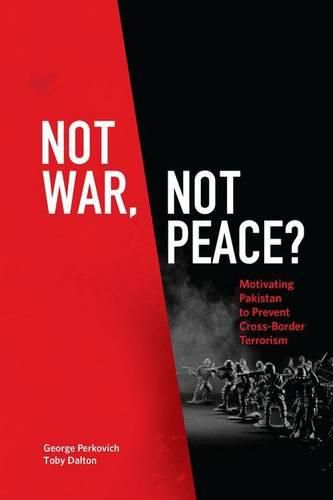Readings Newsletter
Become a Readings Member to make your shopping experience even easier.
Sign in or sign up for free!
You’re not far away from qualifying for FREE standard shipping within Australia
You’ve qualified for FREE standard shipping within Australia
The cart is loading…






The Mumbai blasts of 1993, the attack on the Indian Parliament in 2001, Mumbai 26/11- cross-border terrorism has continued unabated. What can India do to motivate Pakistan to do more to prevent such attacks? In the nuclear times that we live in, where a military counter-attack could escalate to destruction beyond imagination, overt warfare is clearly not an option. But since outright peacemaking seems similarly infeasible, what combination of coercive pressure and bargaining could lead to peace? The authors provide, for the first time, a comprehensive assessment of the violent and non-violent options available to India for compelling Pakistan to take concrete steps towards curbing terrorism originating in its homeland. They draw on extensive interviews with senior Indian and Pakistani officials, in service and retired, to explore the challenges involved in compellence and to show how non-violent coercion combined with clarity on the economic, social, and reputational costs of terrorism can better motivate Pakistan to pacify groups involved in cross-border terrorism. Not War, Not Peace? goes beyond the much discussed theories of nuclear deterrence and counterterrorism strategy to explore a new approach to resolving old conflicts.
$9.00 standard shipping within Australia
FREE standard shipping within Australia for orders over $100.00
Express & International shipping calculated at checkout
The Mumbai blasts of 1993, the attack on the Indian Parliament in 2001, Mumbai 26/11- cross-border terrorism has continued unabated. What can India do to motivate Pakistan to do more to prevent such attacks? In the nuclear times that we live in, where a military counter-attack could escalate to destruction beyond imagination, overt warfare is clearly not an option. But since outright peacemaking seems similarly infeasible, what combination of coercive pressure and bargaining could lead to peace? The authors provide, for the first time, a comprehensive assessment of the violent and non-violent options available to India for compelling Pakistan to take concrete steps towards curbing terrorism originating in its homeland. They draw on extensive interviews with senior Indian and Pakistani officials, in service and retired, to explore the challenges involved in compellence and to show how non-violent coercion combined with clarity on the economic, social, and reputational costs of terrorism can better motivate Pakistan to pacify groups involved in cross-border terrorism. Not War, Not Peace? goes beyond the much discussed theories of nuclear deterrence and counterterrorism strategy to explore a new approach to resolving old conflicts.